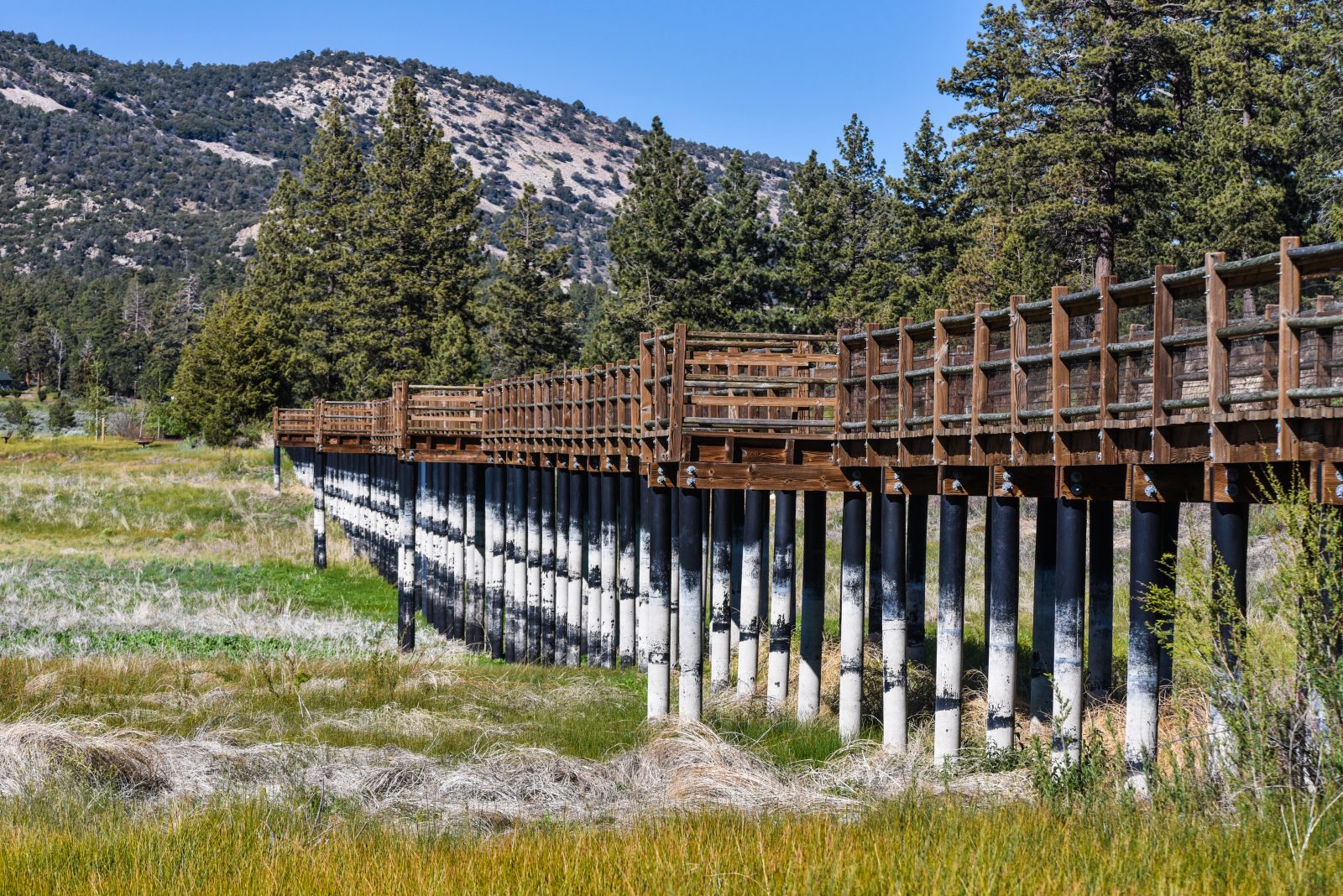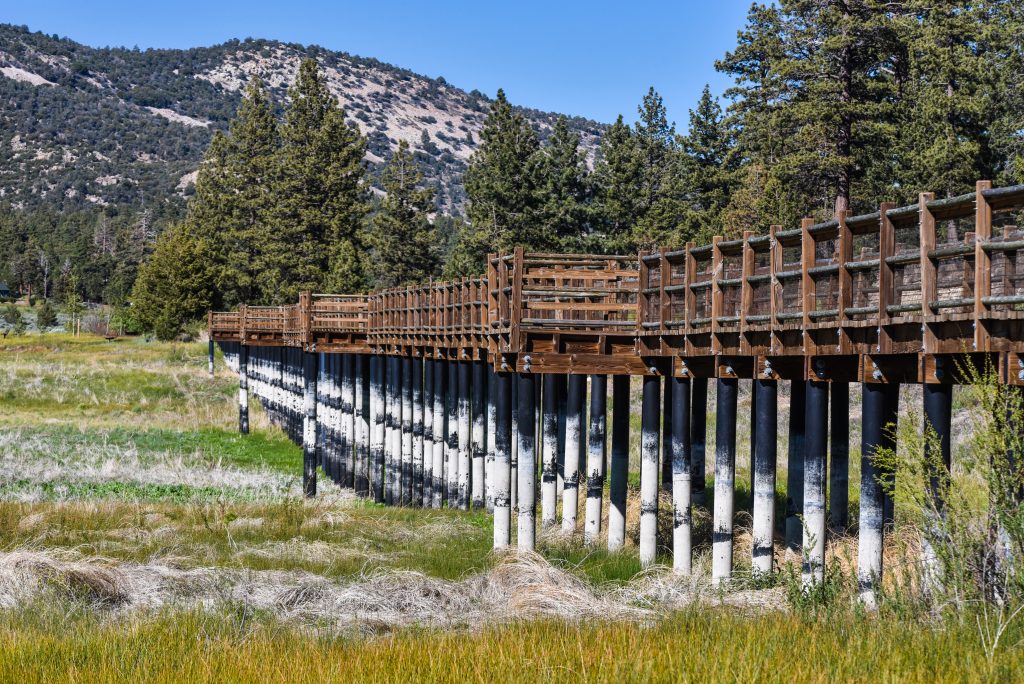Broken Mountains


Eric Herman recently returned to southern California’s San Bernadino Mountains only to find an alpine region reeling from drought, over population and a diseased forest. Despite the environmental devastation, tens of thousands of weekend vacationers were on hand elbowing their way in and around what little remains of the mountains that were once so welcoming.
By Eric Herman
Growing up in southern California, I spent a ton of time in the San Bernadino Mountains. My aunt Lula and Uncle Tellus owned a beautiful cabin in the small town of Crestline, a place I associate with countless wonderful childhood memories. We spent days upon days on the sunny shores of Lake Gregory, enjoying paddleboards, cool water and the clean mountain air.
In my childhood, the mountains seemed endless, rising above the cityscape of the LA area, it was a magic place to get away. I experienced that alpine and watery joy for more than 30 years, well into adulthood.
But, oh how things change. I moved away from SoCal for more than 10 years for the spectacular climes of the Monterey Bay and the Pacific Northwest. The majesty of the water and the lush landscapes redefined my idea of natural beauty, and the San Bernadino Mountains have seemed like light years away.
Having returned to the southland at the beginning of the pandemic, I just now returned to the SB Mountains, and how different it is now, or so it seems.
I visited Big Bear Lake, a venerable vacation spot, one chalk-full of lifetime memories. It had been 15 years since I was there, and the toll that has been laid upon these mountains is stunning. Back in the 90s and into the early 2000s there was an infestation that devastated the forest, the infamous Bark Beetle, felled literally tens of millions of trees. There have been massive fires that have raged through the mountains, and now the drought has dropped both lakes Gregory and Big Bear to record lows. The forest understory is little more than a bristly tinderbox of dead and dying vegetation.
The mountains have taken a beating over the past 30 years. The once-great forests are thin, short and dry as a tinder box. The once scenic shorelines of Big Bear Lake have retreated to dusty and dry vestiges of their former selves.
And, there are so many people taking advantage of every remaining shred of natural beauty they can find. All the beautiful trail heads and parks were overrun with humans looking to escape the heat. The lake was choked with boats on the remaining water. The marinas and roads were jammed at every turn, with visitors clamoring and crowding each other, all in search of a slice of the once-beautiful mountains.
My impression is that these mountains and lakes have given all they have to give. The landscape is overdeveloped and beaten down. The spaces, once so grand and expansive, now seem so small and diminished.
It didn’t help that I was staying at a property that advertised a large pool, that as it turned out is drained and awaiting a major renovation. Everywhere I looked it was like a broken promise of alpine escape, only to be realized as a lost and forlorn place, riddled with crime and overpopulation.
It all made me so sad, and the experience pointed out the value of water, and the painful absence of it.
Photo by Frank Fennema | Shutterstock









